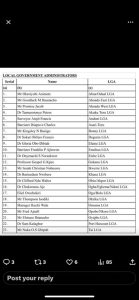News
First Lady Support Historic Bill to Reserve Seats for Women in Parliament
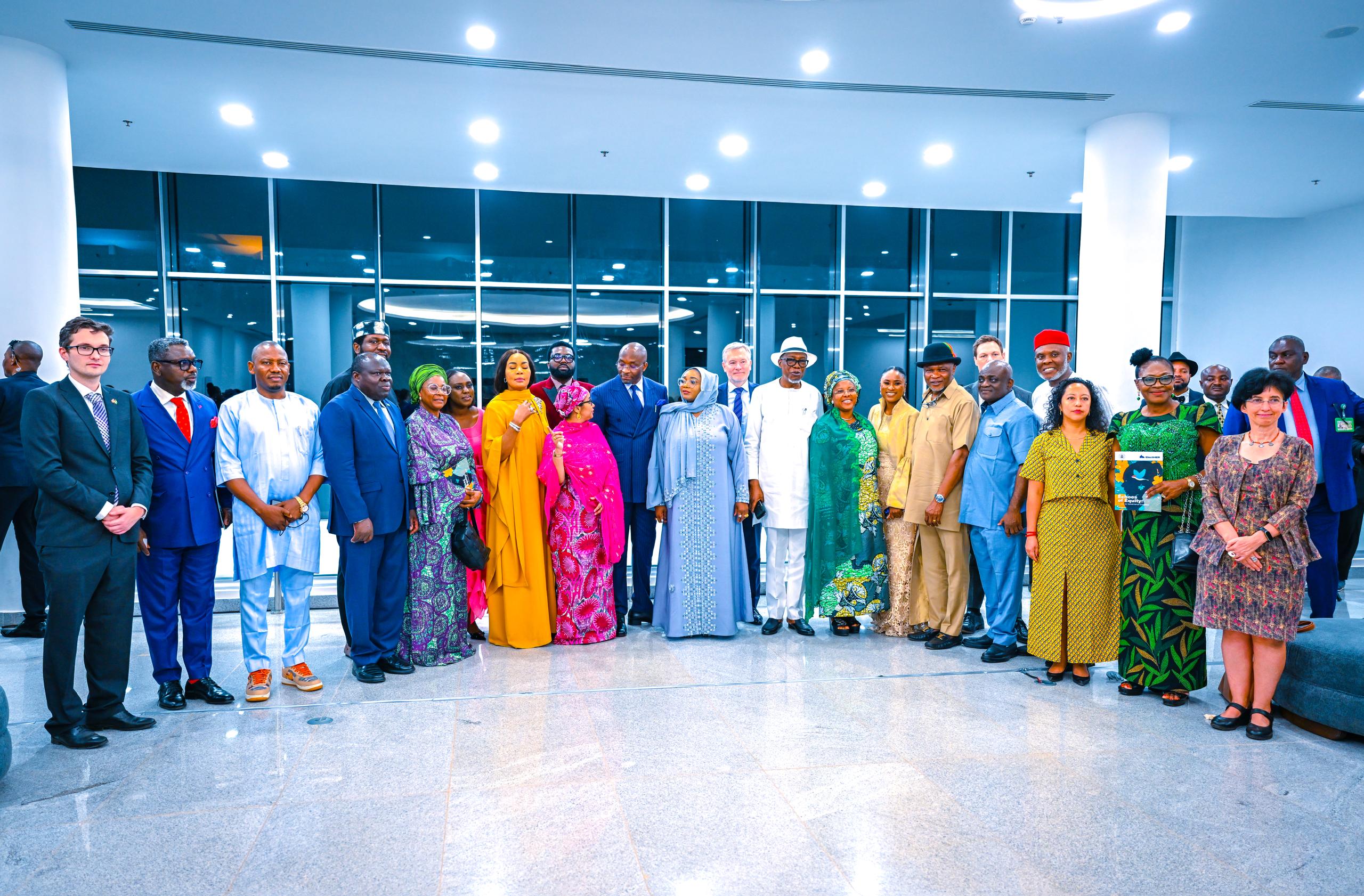
News
Japa: Nigeria loses $366m as 16,000 doctors move abroad
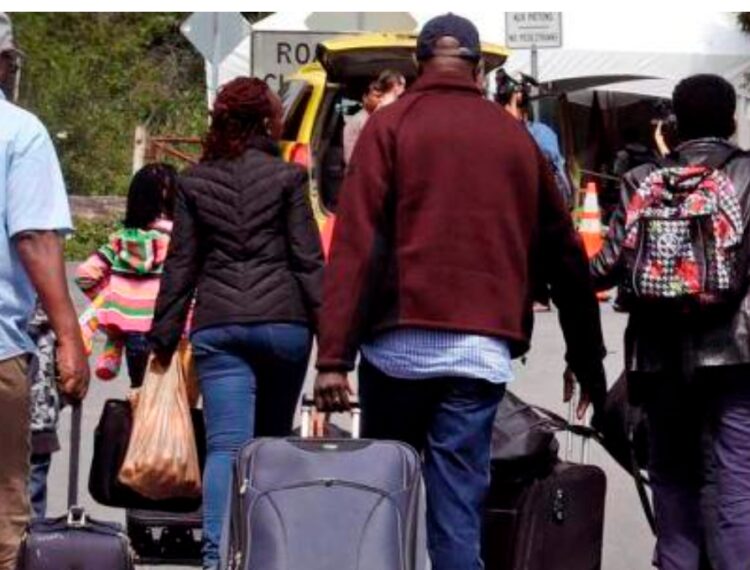
The Coordinating Minister of Health and Social Welfare, Prof Muhammad Pate said over 16,000 Nigerian doctors have left the country in the last five to seven years to seek greener pastures in other countries.
Prof Pate also said the doctor-to-population ratio is now 3.9 per 10,000 in the country, while the estimated cost of training one doctor exceeds $21,000.
This was as he lamented that nurses and midwives who left have also thinned the number of healthcare workers in the country.
The minister disclosed this at the seventh annual capacity building workshop of the Association of Medical Councils of Africa in Abuja on Tuesday with the theme, “Integrated healthcare regulation and leadership in building resilient health systems.”
According to him, an increasing number of Nigeria’s talented healthcare professionals aspire to work in other countries, driven by factors such as economic opportunity, better working conditions, more advanced training, and superior research environments abroad.
He said the migration of health professionals from developing countries is not new, but it has accelerated in recent years.
“In Nigeria alone, over 16,000 doctors are estimated to have left the country in the last five to seven years, with thousands more leaving in just the past few years. Nurses and midwives have also thinned in numbers. The doctor-to-population ratio now stands at around 3.9 per 10,000—well below the suggested global minimum.
“But this trend is not just about people leaving. It represents a fiscal loss.
The estimated cost of training one doctor exceeds $21,000—a figure that reflects the magnitude of public financing walking out of our countries. It deeply affects our health systems—leaving many of our rural communities critically underserved.”
He, however, emphasised that the phenomenon offers an opportunity to rethink and reshape the policies, to manage the valuable health workforce in ways that benefit our countries first and foremost.
“In Nigeria, guided by the vision of President Bola Ahmed Tinubu, who was appointed by African Heads of State as the AU’s Continental Champion for Human Resources for Health and Community Health Delivery—we are pursuing a new direction. His vision is that Nigeria becomes a prosperous, people-oriented country, contributing to a peaceful and thriving continent. Not a standalone Nigeria, but a Nigeria that is interlinked with all our neighbours and sister countries. Under the Renewed Hope Agenda, and within the framework of the Nigeria Health Sector Renewal Investment Initiative, we have embraced a new path—combining strategic realism with visionary ambition.
“The National Policy on Health Workforce Migration is a cornerstone of this path. It is designed to address health workforce migration with dignity—dignity for health workers, for the country, and for the profession. It is data-driven, evidence-guided, and signals a clear direction. This is not a restrictive policy, nor is it one born out of resignation. We understand that the global health workforce shortage is at 18 million, and countries in the Global North face their own human resource crises due to demography and other factors. But our response is based on stewardship—balancing the rights of health professionals to seek opportunities abroad with our duty to protect the integrity and viability of our national health system.
“The objectives are clear. To retain and motivate health workers currently serving in Nigeria—thousands of whom work under difficult conditions; to establish ethical norms and explore bilateral frameworks for recruitment, aiming to correct global asymmetries; to expand training capacity—not only for domestic needs, but to contribute to global workforce needs, to enable structured reintegration for the thousands of Nigerian professionals abroad; and to strengthen governance, improve regulatory coordination, and build real-time data systems.”
He urged Africa to lead in forging a new global compact on health workforce mobility—anchored in pan-African training and accreditation standards; shared planning tools, evidence, and data; continental negotiating platforms with destination countries; and sustained investments in the people who care for our people.
The President of AMCOA, Prof Joel Okullo, stressed the importance of collaboration among African countries to tackle healthcare challenges and improve regulation and leadership across the continent.
He expressed the belief that the outcome of the workshop would produce actionable strategies to improve healthcare services across Africa.
“This year’s theme highlights our commitment to tackling the diverse array of challenges within the health regulatory landscape. It seeks to empower AMCOA members and associate members with the wisdom and skills needed for informed strategic and operational decisions in the coming year.
“In this intricate regulatory tapestry, our discussions will illuminate strategies and insights that will bolster regulators’ capabilities. Our focus will revolve around managing health workforce mobility, improving credentialing and information data management systems
“Let us embark on this journey with enthusiasm and a shared sense of purpose. Our collaborative efforts today and over the next few days will lay the groundwork for transformative changes that will resonate across the healthcare landscape of Africa,” he noted.
The Registrar of the Medical and Dental Council of Nigeria, Dr Fatima Kyari, while welcoming participants to the event, noted that it was Nigeria’s first AMCOA workshop while commending the alignment of leadership towards the shared goal of patient safety.
The Board Chairperson of MDCN, Prof Afolabi Lesi highlighted the need for healthcare regulators to uphold global standards while adapting to local contexts.
Lesi, who is also the Chairman of the Local Organizing Committee for the workshop addressed the challenges of fragmented professional relationships that hinder implementation and compromise patient care.
“The reality is that while we have committed and clear directions at the level of governance, implementation of actions is bedeviled by the fractioned and fractious relationship among health workers who ought to be working as a team, with the patient (well-being and safety) as the primary focus of all our actions,” he said.
Photo caption: Members of AMCOA; the Registrar of MDCN, Dr Fatima Kyari; the Board Chairperson of MDCN, Prof Afolabi Lesi; the Coordinating Minister of Health and Social Welfare, Prof Muhammad Pate; the Minister of State of Humanitarian Affairs and Poverty Reduction, Dr Yusuf Sununu; and other AMCOA members.
News
SAD! Roof Collapses At Nightclub Kills 44, Including province Gov

The roof of the iconic Jet Set nightclub in Santo Domingo collapsed during a merengue concert, leaving at least 44 people dead and 160 injured.
The venue, which was filled with politicians, athletes, and other guests, became the site of devastation as rescue crews worked tirelessly to find survivors in the rubble, according to AP News.
Juan Manuel Méndez, director of the Centre of Emergency Operations, confirmed that search efforts continued.
“We presume that many of them are still alive, and that is why the authorities here will not give up until not a single person remains under that rubble,” he said.
Rescue workers spent hours clearing debris, determined to reach those trapped beneath the ruins.
By the afternoon, the death toll had risen to 44, with rescue teams still pulling survivors from the wreckage. Amid the chaos, the noise of drills and machinery filled the air as workers navigated through broken concrete and beams to save lives.
Among the victims was Nelsy Cruz, the governor of the northwestern province of Montecristi and sister of MLB All-Star Nelson Cruz. She had called President Luis Abinader at 12:49 a.m. to report that the roof had collapsed and she was trapped.
Cruz later died in hospital.
“This is too great a tragedy,” said First Lady Raquel Abraje, her voice choked with emotion.
Several notable figures were also injured, including former MLB pitcher Octavio Dotel, legislator Bray Vargas, and merengue singer Rubby Pérez, who was performing when the roof collapsed.
Pérez’s manager, Enrique Paulino, whose shirt was stained with blood, described how quickly the disaster unfolded.
“It happened so quickly. I managed to throw myself into a corner,” he said. “I initially thought it was an earthquake.”
The cause of the collapse remains unclear, with the nightclub expressing full cooperation with authorities. “The loss of human life leaves us in a state of deep pain and dismay,” the nightclub said in a statement.
As rescue operations continued, anxious family members gathered outside the venue, waiting for news of their loved ones. Manuel Olivo Ortiz, whose son had attended the concert, said, “We’re holding on only to God.”
Massiel Cuevas, the godmother of 22-year-old Darlenys Batista, was also waiting, firmly believing that Batista would be rescued.
“I’m waiting for her. She’s in there, I know she’s in there,” Cuevas said.
President Abinader shared his condolences on social media, stating that all rescue agencies were “working tirelessly” to assist those affected.
He later visited the scene, offering support to grieving families. “We have faith in God that we will rescue even more people alive,” Abinader told reporters.
Authorities urged the crowd to allow ambulances and rescue workers to do their jobs. At a nearby hospital, officials read aloud the names of survivors, while the National Institute of Forensic Pathology displayed photos of victims to help identify them. The search for survivors continues as hope remains.
News
Ibas picks administrators for 23 Rivers LGs(SEE list)
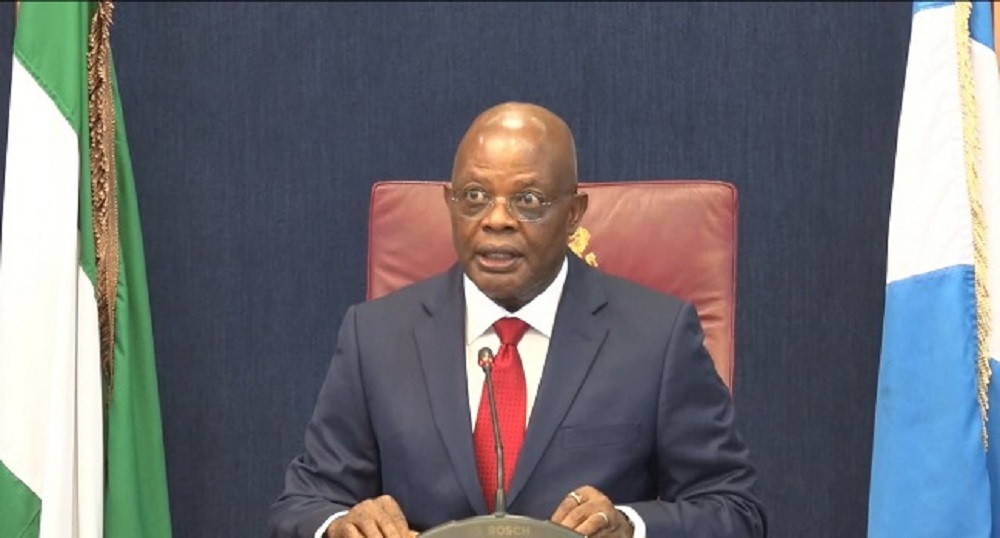
The Sole Administrator of Rivers State, Admiral Ibok-Ete Ibas [retd], said the federal government had released withheld local government allocations.
Rivers State Sole Administrator Vice Admiral Ibok-Ete Ibas (retd.) has appointed administrators to temporarily take charge of the state’s 23 local government areas.
Ibas also approved the constitution of some boards of agencies, commissions, and parastatals, which he earlier suspended.
The approval was contained in a Special Government Announcement issued on Wednesday morning by the Secretary to the State Government, Prof. Ibibia Worika.
Though the names of the new appointees were not listed, the statement said the appointments took immediate effect.
It reads, “His Excellency The Administrator of Rivers State, Vice Admiral (Retd) Ibok-Ete Ekwe Ibas CFR, has approved the appointments of administrators for the 23 Local Government Areas of Rivers State.
“He has also approved the reconstitution of some boards of agencies, commissions, and parastatals, earlier suspended.
“All appointments take effect from Monday, the 7th of April 2025.”
This comes less than 24 hours after a Federal High Court sitting in Port Harcourt reportedly restrained Ibas from appointing administrators to oversee the affairs of the local government councils.
The order was issued by Justice Adam Muhammed on Tuesday in suit no. FHC/PH/CS/46/2025 in the case filed by PILEX Centre for Civic Education Initiative led by Courage Msirimovu against the Sole Administrator in his official capacity.
Last week, the sole administrator suspended all heads of ministries, departments, and agencies in the state with immediate effect.
Ibas also cancelled all pending procurement and tender processes carried out by ministers, departments, and agencies in the state.
He said the cancellation became necessary following the Supreme Court judgment and the absence of an appropriation law within the period.
The sole administrator, according to a previous statement also issued by the SSG, directed all MDAs that carried out such tender processes for projects in their respective offices to refund such fees to the respective contractors immediately.
-

 News13 hours ago
News13 hours agoOERAF held memorial lecture on conflict resolution, security/safety of community in Nigeria
-
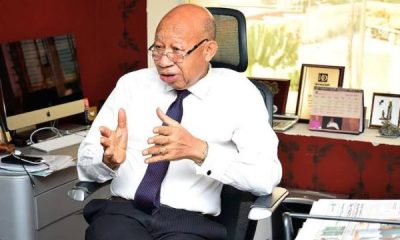
 News23 hours ago
News23 hours agoJust in: Founder of Diamond Bank and ex-chairman of MTN, Paschal Dozie is dead
-

 News19 hours ago
News19 hours agoTRADE WAR! U.S. angry over Nigeria’s import ban on 25 products
-

 Sports23 hours ago
Sports23 hours agoReal Madrid keeping tabs on Victor Osimhen
-

 News19 hours ago
News19 hours agoINTERVIEW: Introduction of Child Rights Curriculum In Nigerian Universities Will Take CRA to Families – Dr Obiorah Edogor
-
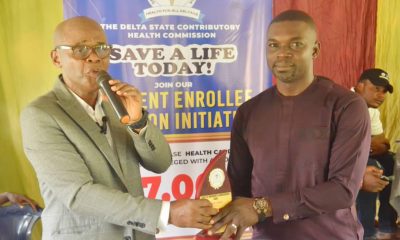
 News23 hours ago
News23 hours agoOERAF Executive Director Dr Akpodiete, Held Memorial lecture on Essence and benefits of health insurance+Photos
-

 News13 hours ago
News13 hours agoHoR Minority Caucus decries killings in Plateau, Benue states, urges immediate presidential decisive actions
-

 News6 hours ago
News6 hours agoBandits have seized control of 64 communities in Plateau – Gov Muftwang












